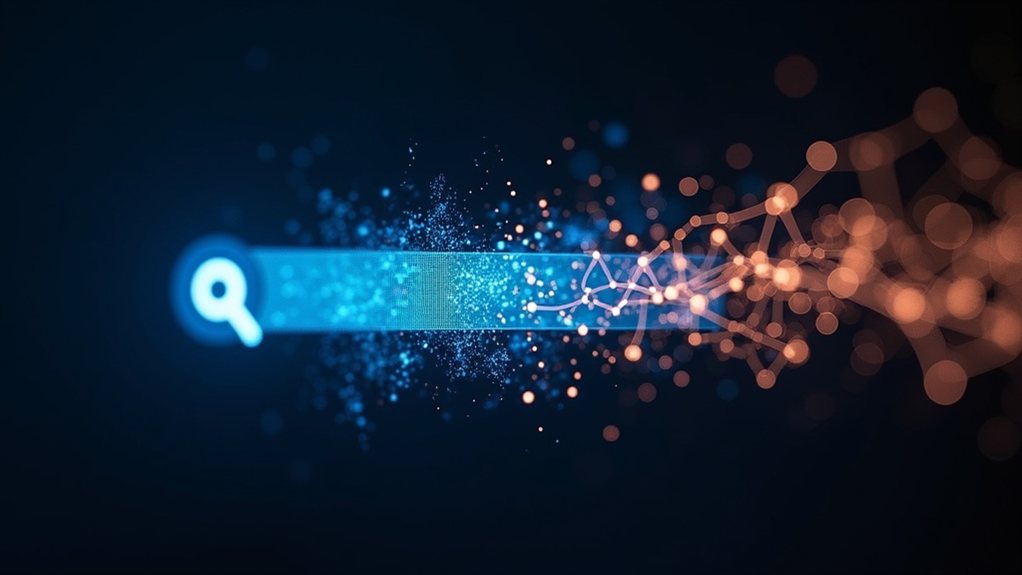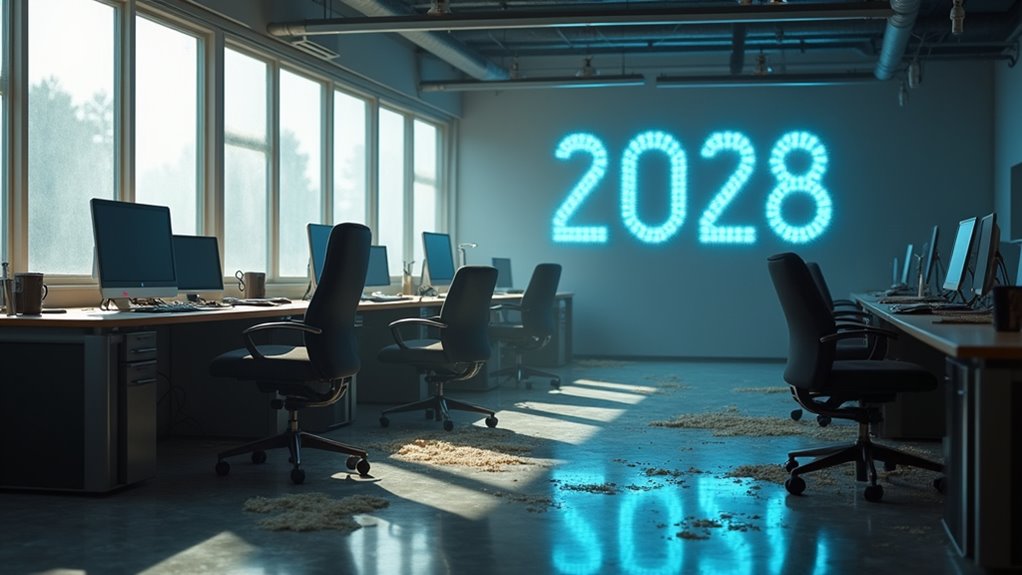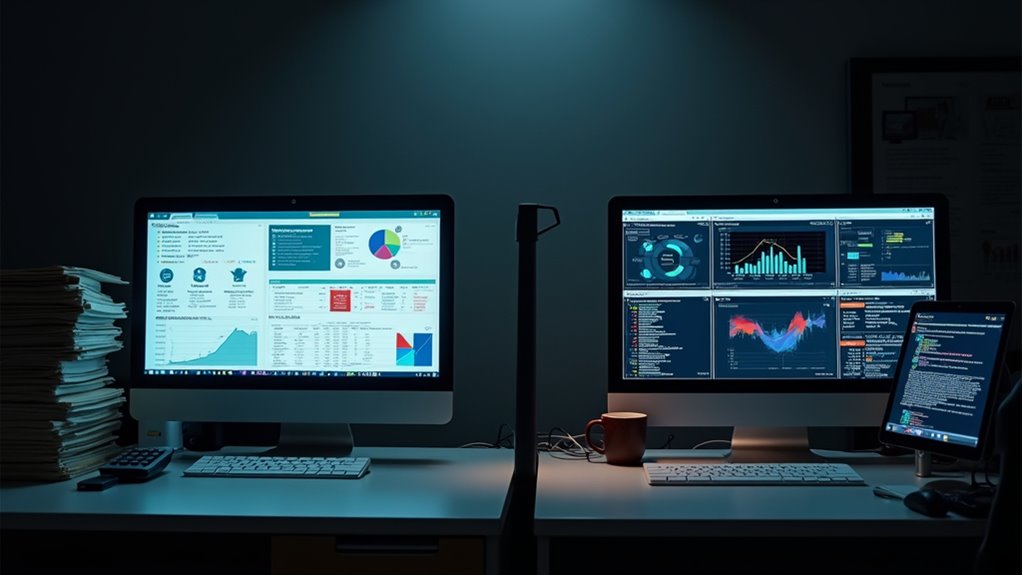AI chatbots now command nearly 3% of total search traffic, while two-thirds of consumers expect these digital assistants to completely replace traditional search within five years. Microsoft’s Bing exploded to over 100 million daily users after integrating GPT-4, and visitors from AI search are proving 4.4 times more valuable than regular organic traffic. The revolution isn’t coming—it’s already reshaping how we discover information, and the implications run deeper than most realize.
Sure, AI chatbots still represent just 2.96% of total search traffic—but that’s like saying the iPhone was “just another phone” in 2007.
Two-thirds of consumers believe AI will completely replace traditional search within five years, and frankly, the writing’s on the wall.
Google still processes over 5 trillion searches annually, growing 20% year-over-year. But Microsoft’s Bing, previously the punchline of search engine jokes, now boasts over 100 million daily users after integrating OpenAI’s GPT-4. *That’s not exactly small potatoes.*
Consumer attitudes are shifting faster than anyone anticipated. While 64% report positive feelings toward AI search tools, 49% still prefer those familiar blue links for deeper research. In fact, 82% of consumers find AI-powered search more helpful than traditional SERPs, signaling a fundamental shift in search preferences.
It’s like wanting both a sports car *and* your reliable minivan—different tools for different jobs.
The frustrations driving this migration are painfully familiar: cluttered ads, inaccurate AI overviews, and irrelevant results plaguing traditional platforms.
Meanwhile, AI search offers clean interfaces and instant answers—exactly what users didn’t know they were desperately craving. Google’s Search Generative Experience launched in May 2023 exemplifies this evolution, providing AI-generated snapshot answers that summarize information from multiple web sources.
For businesses, this shift demands immediate strategic recalibration. Voice search optimization now centers on natural language queries, while visual search through tools like Google Lens amplifies demand for image SEO.
Traditional keyword-stuffing tactics have become as obsolete as dial-up internet.
Companies utilizing AI-driven platforms like Semrush Enterprise AIO are experiencing higher ranking success, while those clinging to outdated methods risk significant organic search losses by 2028.
The economic implications are staggering—visitors from AI search prove 4.4 times more valuable than traditional organic traffic. The AI Overviews feature has dramatically reduced research time by synthesizing key information from diverse sources into digestible snapshots.
The revolution isn’t coming; it’s already here. With 83% of companies treating AI as a top business priority and projections suggesting ChatGPT-driven traffic may surpass organic search by 2028, the question isn’t whether your trusted search engines will change—it’s whether you’ll adapt quickly enough to stay relevant.








